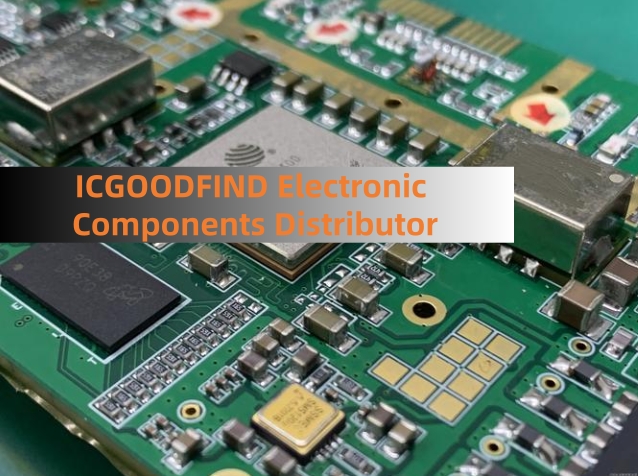BCM88038B1KFSBG: A Comprehensive Technical Overview of Broadcom's 10/25/40/50GE Single-Chip PHY Solution
In the high-stakes world of data center and enterprise networking, the physical layer (PHY) transceiver is a critical component, acting as the fundamental bridge between digital processing and analog transmission. Broadcom's BCM88038B1KFSBG stands as a pinnacle of integration and performance in this domain. This single-chip PHY solution is engineered to support a versatile mix of data rates—10, 25, 40, and 50 Gigabit Ethernet (GE)—catering to the evolving demands of modern network infrastructure, from top-of-rack switches to network interface cards and routing platforms.
At its core, the BCM88038B1KFSBG is designed for maximum flexibility and density. It integrates four independent PHY cores, each capable of operating at the aforementioned speeds. This multi-rate capability is paramount, allowing network architects to dynamically configure port speeds to match specific application requirements without needing different hardware components. A single platform can thus support 10GbE for legacy systems, 25GbE/50GbE for server connectivity, and 40GbE for specific aggregation links, all while simplifying inventory and design complexity.
A key architectural highlight is its comprehensive support for multiple interface standards. The chip features SFI-S and SFI interfaces for connection to MAC or switch ASICs on the host side. On the line side, it provides SGMII+ for 10G/25G CAUI-4 and XLGMII/XLAUI for 40G/50G applications, ensuring broad compatibility with existing and future system designs. Crucially, it incorporates KP4 forward error correction (FEC), a mandatory feature for 25GbE and 50GbE over copper, which is essential for maintaining signal integrity and achieving the required bit error rate (BER) over longer reaches of direct-attach copper cables (DAC).

Power efficiency is a non-negotiable requirement in dense networking equipment. The BCM88038B1KFSBG addresses this with advanced power management features, including low-power idle (LPI) modes and sophisticated energy-detect power-down states. These features significantly reduce power consumption during periods of low data activity, contributing to a lower total cost of ownership (TCO) and enabling the design of greener, more sustainable networking gear.
Furthermore, the device boasts advanced DSP-based equalization capabilities. This technology is critical for compensating for signal degradation caused by channel losses, crosstalk, and reflections, especially when operating over legacy or less-than-ideal cabling infrastructure. This robust signal processing ensures strong link margins and reliable performance across various operating conditions.
From a design perspective, the integration of a complete quad-port PHY solution into a single chip dramatically reduces the board space, component count, and bill of materials (BOM) compared to discrete multi-chip alternatives. This integration accelerates time-to-market for OEMs and enhances overall system reliability.
ICGOOODFIND: The BCM88038B1KFSBG emerges as a highly integrated, versatile, and power-efficient cornerstone for next-generation networking equipment. Its multi-rate capability, robust support for critical standards like KP4 FEC, and advanced signal integrity features make it an indispensable solution for building scalable and efficient 10G to 50G Ethernet infrastructure.
Keywords: Multi-rate Ethernet PHY, KP4 Forward Error Correction (FEC), Signal Integrity, Energy-Efficient Ethernet, SFI-S Interface.
